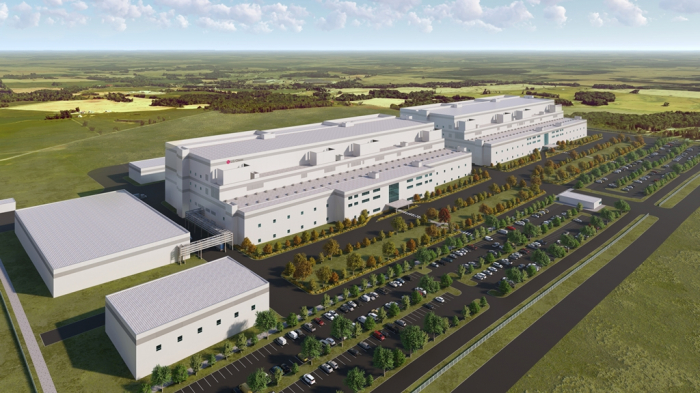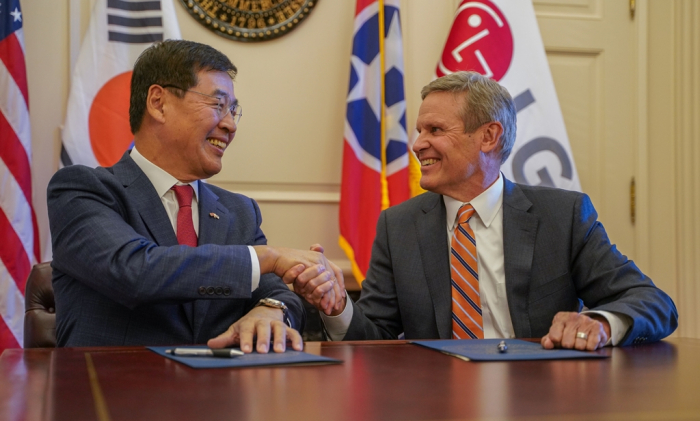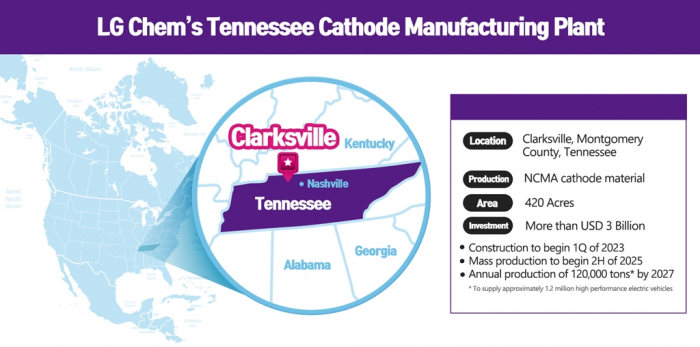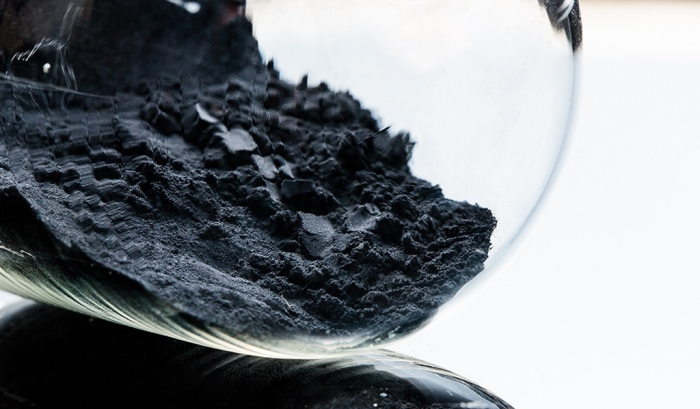Batteries
LG Chem to build $3.2 billion US cathode plant in Tennessee
The factory, which will create over 850 new jobs, is also aimed at responding to the recent EV tax credit law
By Nov 22, 2022 (Gmt+09:00)
3
Min read
Most Read
LG Chem to sell water filter business to Glenwood PE for $692 million


Kyobo Life poised to buy Japan’s SBI Group-owned savings bank


KT&G eyes overseas M&A after rejecting activist fund's offer


StockX in merger talks with Naver’s online reseller Kream


Mirae Asset to be named Korea Post’s core real estate fund operator



LG Chem Ltd., South Korea’s largest chemicals maker, said on Tuesday it is building a $3.2 billion cathode plant in Tennessee, its first factory for the battery component in the US, to meet growing demand and respond to the rapidly changing business conditions in North America.
LG Chem, parent of the world’s second-largest battery maker LG Energy Solution Ltd., has signed a memorandum of understanding with the US state government on the cathode manufacturing facility in Clarksville, Tennessee – the largest of its kind in the US.
The plant will be capable of producing 120,000 tons of cathodes a year by 2027, enough to power 1.2 million pure electric vehicles with a range of 500 km per charge, the company said.
Construction of the plant will begin in the first quarter of next year on land stretching 1.7 million square meters, with mass production scheduled for the second half of 2025.

Cathode, a key ingredient for rechargeable batteries, is made up of nickel, lithium and other materials, and comprises around 40% of the cost of electric vehicle batteries.
Securing a stable supply of cathode materials has increasingly become a key factor for both automakers and battery manufacturers amid rising mineral costs.
SMART FACTORY WITH 100% RENEWABLE ENERGY
“The new cathode manufacturing facility in Tennessee will bring us one step closer to becoming the world’s best battery materials manufacturer,” LG Chem Chief Executive Shin Hak-cheol said in a statement.
The company said the new factory will operate on 100% renewable energy and smart factory technology to automate the entire production process.

LG said the new plant will feature advanced technology such as producing more than 10,000 tons of cathode material per line, the industry’s highest.
Tennessee Gov. Bill Lee, Department of Economic and Community Development Commissioner Stuart McWhorter and LG Chem CEO Shin attended the signing ceremony.
“LG Chem’s decision to invest $3.2 billion in Clarksville is a testament to Tennessee’s unmatched business climate, skilled workforce and position as a leader in the automotive industry,” said the Tennessee governor.
The new factory will also create more than 850 new jobs across Montgomery County, he said.
CLOSER TO CUSTOMERS
LG Chem said Tennessee is the best choice for the company due to its proximity to key customers, ease of transporting raw materials and active cooperation of the state and local governments.
Tennessee is home to Ultium Cells LLC, LG’s battery joint venture with General Motors Co.

LG Chem said the Tennessee facility will help it achieve its goal of increasing its global battery materials business fourfold to 20 trillion won ($14.8 billion) by 2027 from an estimated 5 trillion won in 2022.
The new factory will also allow LG to proactively address the changing dynamics of the global battery material market and with legislation such as the Inflation Reduction Act (IRA).
The IRA, signed into law by US President Joe Biden in August, requires a certain percentage of critical minerals used in EV batteries to come from the US or its free trade partners.
From next year, EV makers must use batteries with materials sourced primarily in North America for their cars to be eligible for the tax credit of up to $7,500 per unit.
Qualifying EVs must contain at least 40% of their battery minerals and 50% of their battery components from those countries. The proportion will rise to 80% for minerals by 2027 and 100% for parts by 2029.
Write to Jae-Fu Kim at hu@hankyung.com
In-Soo Nam edited this article.
More to Read
-
 BatteriesLG Energy Solution diversifies supply chains to respond to US IRA
BatteriesLG Energy Solution diversifies supply chains to respond to US IRANov 11, 2022 (Gmt+09:00)
1 Min read -
 EarningsLG Chem posts strong Q3 earnings, buoyed by battery business
EarningsLG Chem posts strong Q3 earnings, buoyed by battery businessOct 31, 2022 (Gmt+09:00)
1 Min read -
 BatteriesLG Chem, GM in $30.6 billion EV battery materials supply deal
BatteriesLG Chem, GM in $30.6 billion EV battery materials supply dealJul 28, 2022 (Gmt+09:00)
2 Min read -
 BatteriesLG Chem, LG Energy acquire 2.6% of battery startup Li-Cycle for $51 million
BatteriesLG Chem, LG Energy acquire 2.6% of battery startup Li-Cycle for $51 millionDec 15, 2021 (Gmt+09:00)
1 Min read
Comment 0
LOG IN


